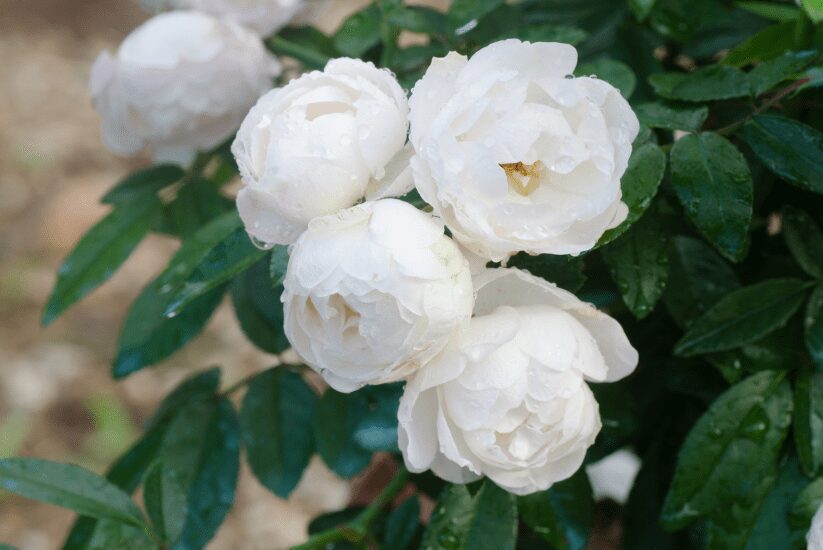
Rosa Hybrid, commonly known as floribunda rose, is an excellent addition to any garden, regardless of size. They produce beautiful, colorful blooms in large clusters throughout the summer months.
With the introduction of shrub roses, a new breed of landscaping roses emerged, offering stunning methods to fill in borders and cover bare dirt.
Groundcover roses are great for mass planting on a border or beneath a tree and combine well with perennials and shrubs.
They can be used to line a path, cover a slope, or fill hanging baskets or window boxes with blooms.
To re-energize groundcover roses, prune them down by two-thirds in early spring while they are still dormant.
Shrub roses combine the most outstanding characteristics of the hardiest rose species with modern repeat flowering and various flower forms, colors, and perfumes.
Some shrub roses might grow tall with solid and far-reaching canes, while others will remain compact. Recent rose breeding efforts have concentrated on creating hardier shrub roses for landscaping that require little to no upkeep.
Rosa Hybrid Details
Scientific name: Rosa hybrid.
Growth habit: Evergreen bushes reaching 5 feet tall and wide. The dark green leaves have three to seven leaflets and can grow to be 6 inches long and half as wide.
Light: Place the plant in full sun.
Water requirements: Make sure the soil is moist. It is essential to water new plants daily to establish their roots.
Water the soil surface every three to four days during hot, dry weather. Mulch should be maintained at a depth of three to four inches.
Feedings: Organic fertilizer for roses or a general garden fertilizer should be applied monthly from March through November. Winter feeding should be done every six weeks.
Propagation: Plants are propagated from seed or cuttings, and new kinds are kept alive by grafting onto a Florida-adapted rootstock.
Ease of culture: Moderate; usually requires spraying to prevent insects and diseases.
Hardiness: Hardy.
Major problems: Leaf loss during the humid rainy season is caused by black spots, a disease; fungicidal sprays can prevent defoliation.
In dry weather, mites are a problem; during warm weather, thrips are a problem. Control these pests with oil sprays or other suitable sprays as needed.
Pruning: In mid-February, rejuvenate shrub-type roses. Remove nonproductive and diseased canes and up to one-half of the plant’s top. Groom is free to remove bouquets, spent blossoms, and stray shoots at any time.
Uses: Plant a single bush or a cluster, or grow in pots. These smaller-growing varieties come in various colors, including the orange-flowered Marmalade Skies (shown).
Native: Most are hybrids with Asian and European relatives.






















